Finding your ancestors in Paris
Paris is often considered as a “black hole” for French Genealogy: most people fear that if they find ancestors who were born in Paris, they will be stuck and unable to go further back in time.
This idea comes from the fact that many records burned in a fire in 1871. For this reason, it can be quite challenging to research Parisian ancestors.
Most of the time, it will require hard work. But it will rarely be completely impossible: there are multiple resources where you can discover traces of your Parisian ancestors. And the good part is that more and more of these resources are available online.
The fire of 1871
After France’s defeat in the Franco-Prussian War of 1870-71, popular riots broke out in Paris. And the government of Paris was taken over by a popular-led government called the Paris Commune. As a consequence, the official government gathered troops to repress the Commune and win back the leadership.
During the Bloody Week, in May 1871, fights escalated: members of the Paris Commune built barricades in the streets and decided to set some official buildings on fire.
Among these buildings were the two buildings which held copies of all civil records prior to 1860: the town hall (Hôtel de Ville) and the law court (Palais de Justice). None of these records could be saved. Many other records were also destroyed while other buildings were burnt down (police records, financial records …). However, civil records from 1860 to 1871, which were kept by district town halls, were untouched by the fire.
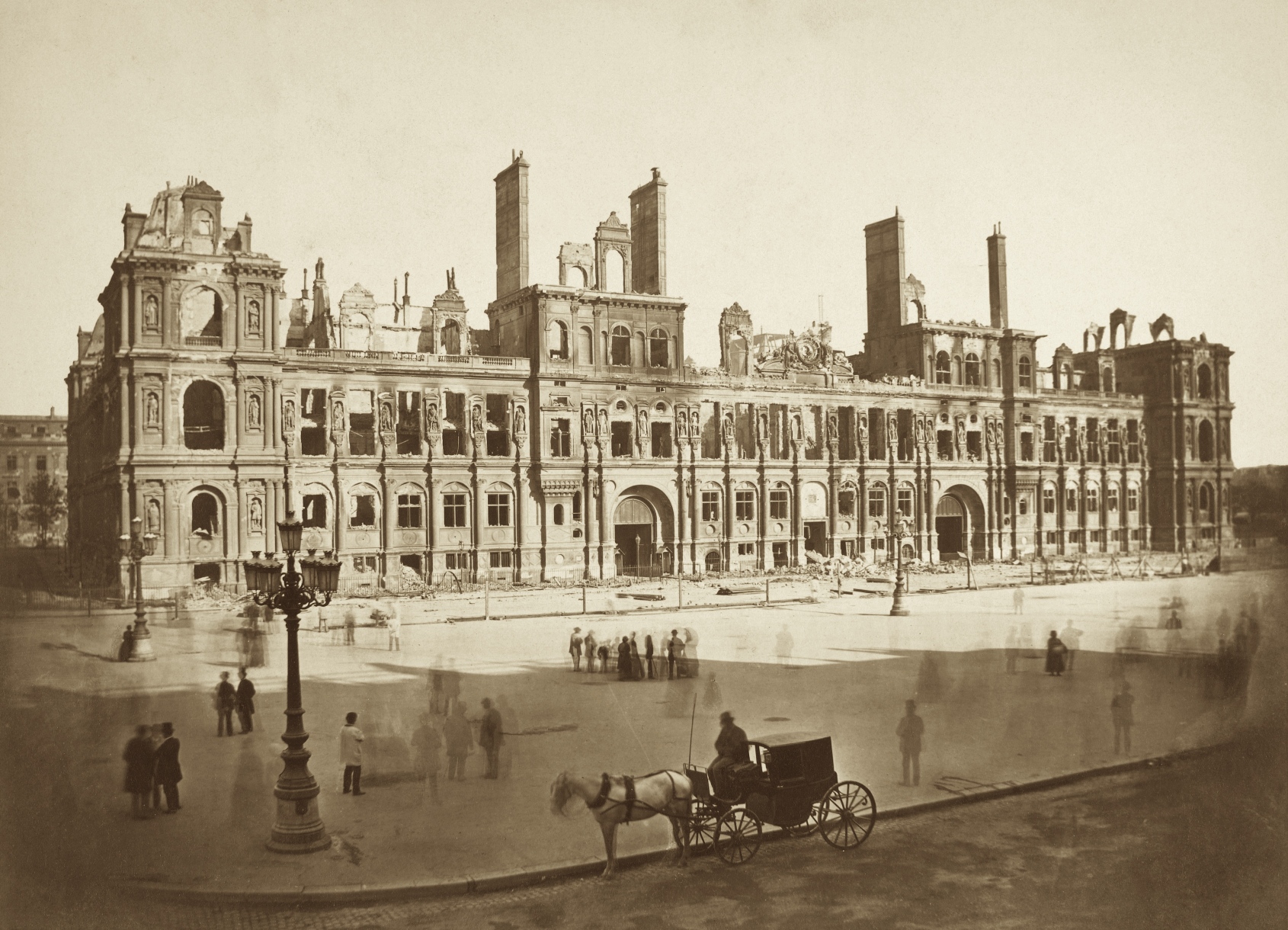
This explains why, when you want to research Parisian ancestors, you will not find the same resources before and after 1860.
Finding your parisian ancestors before 1860
After the events of 1871, efforts have been made to reconstitute Parisian civil records, thanks to family papers, notary records and parish records. But only a third of all the civil records that burned could be recreated.
The records which were reconstituted were mostly from the 19th century, and concerning families which still had descendants in Paris.
All these reconstituted records have been sorted by date and by surname. They have later been microfilmed. They are now accessible both onsite in the Archives of Paris and online on FamilySearch (under the title “Reconstitution chronologique des actes“. Note that there are different files for the different types of records).
However researching a record directly in these files can be quite long and almost impossible if you are not sure of its date and/or if you are not sure that it actually was reconstituted.
Fortunately, an index of these files has been made. This index is made of thousands of cards sorted by alphabetical order and by date. These cards were digitized and are accessible on the website for the Archives of Paris.
For example, if you are looking for Eulalie Roustan born in 1788 in Paris, the following steps will be necessary.
1. Thanks to index cards, you will find that her birth record was reconstituted and that her exact date of birth was May 4th, 1788.
2. You can then look for digitized reconstituted birth records for 1788 on FamilySearch and browse them until you find the correct date, and then the correct surname.
This record was reconstituted thanks to parish records from Saint Eustache church. Thanks to this record, we can discover the name of Eulalie’s parents and we will be able to continue our research.
Finding your parisian ancestors after 1860
All records after 1860 were preserved and later digitized, so you should not have any trouble finding them online. Here is an overview of the records that you can find online on the website for the Archives of Paris:
- Birth records from 1860 to 1924;
- Marriage records from 1860 to 1945;
- Death records from 1860 to 1986.
The only difficulty is to know where to look – in other words, in which arrondissement the event was recorded. Paris is indeed divided in 20 arrondissements which each had their own registers.
If you do not know the arrondissement or the exact date of the record, you will have to use alphabetical tables. There is a table for each arrondissement and each type of record for 10-year periods (tables décennales). You can find them through this link.
Note: between 1933 and 1954, only annual tables exist. You can find them through this link.
Once you have found the exact date and arrondissement of the record, you can use this direct link to the Archives of Paris to look for the records.
For example, if you are looking for the death record for Françoise Lenoble who died around 1917 in Paris, you will go through the following steps.
1. Look through the alphabetical tables from 1913 to 1922 for each arrondissement, until you find her in the 18th arrondissement. This will give you her exact date of death: June 2nd, 1917.
2. Find her death record in the registers for the 18th arrondissement in 1917.
Some useful databases to find parisian records
To help you with your research in Paris, both before and after 1860, the following databases can also be useful:
- On Familles Parisiennes, you will find lists of records (mostly notary records) sorted by surname, with links to the pictures of the records.
- On Geneanet, you will find various indexed records from Paris, photographed by volunteers (most of them are the same as the records you can find on the previous website) and also a lot of online trees uploaded by users where you might find clues.
- On Filae, you will have access to indexed civil records between 1860 and 1900 (and even later for death records) and also some indexes of reconstituted records and marriage records from before 1860.

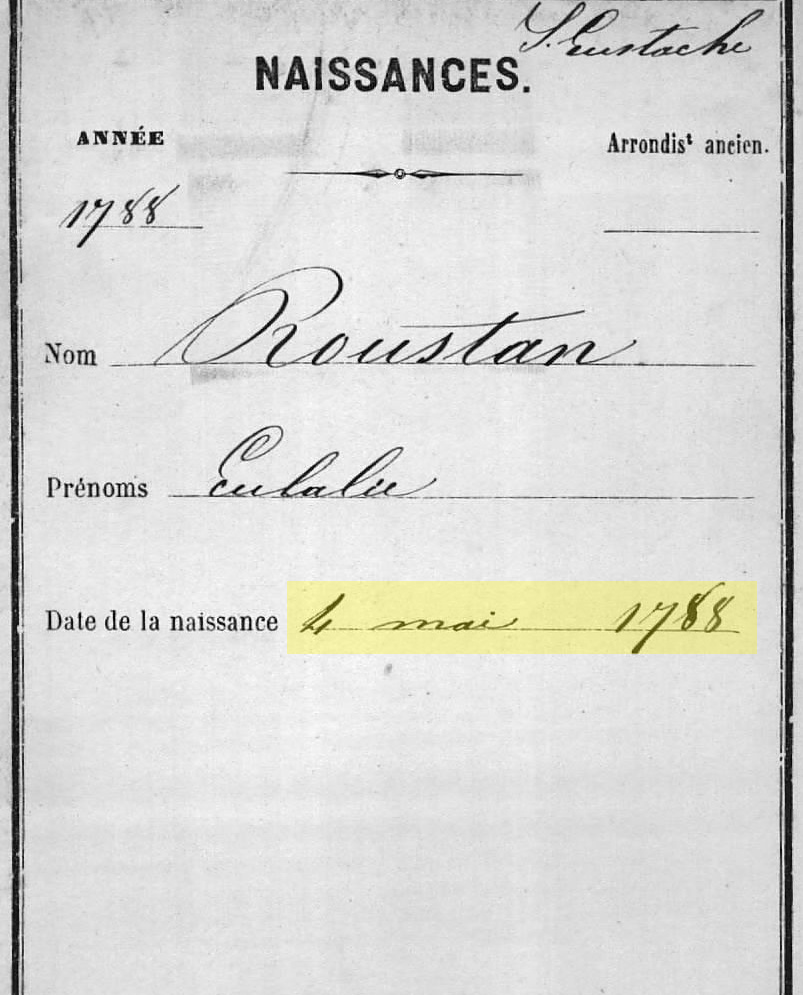
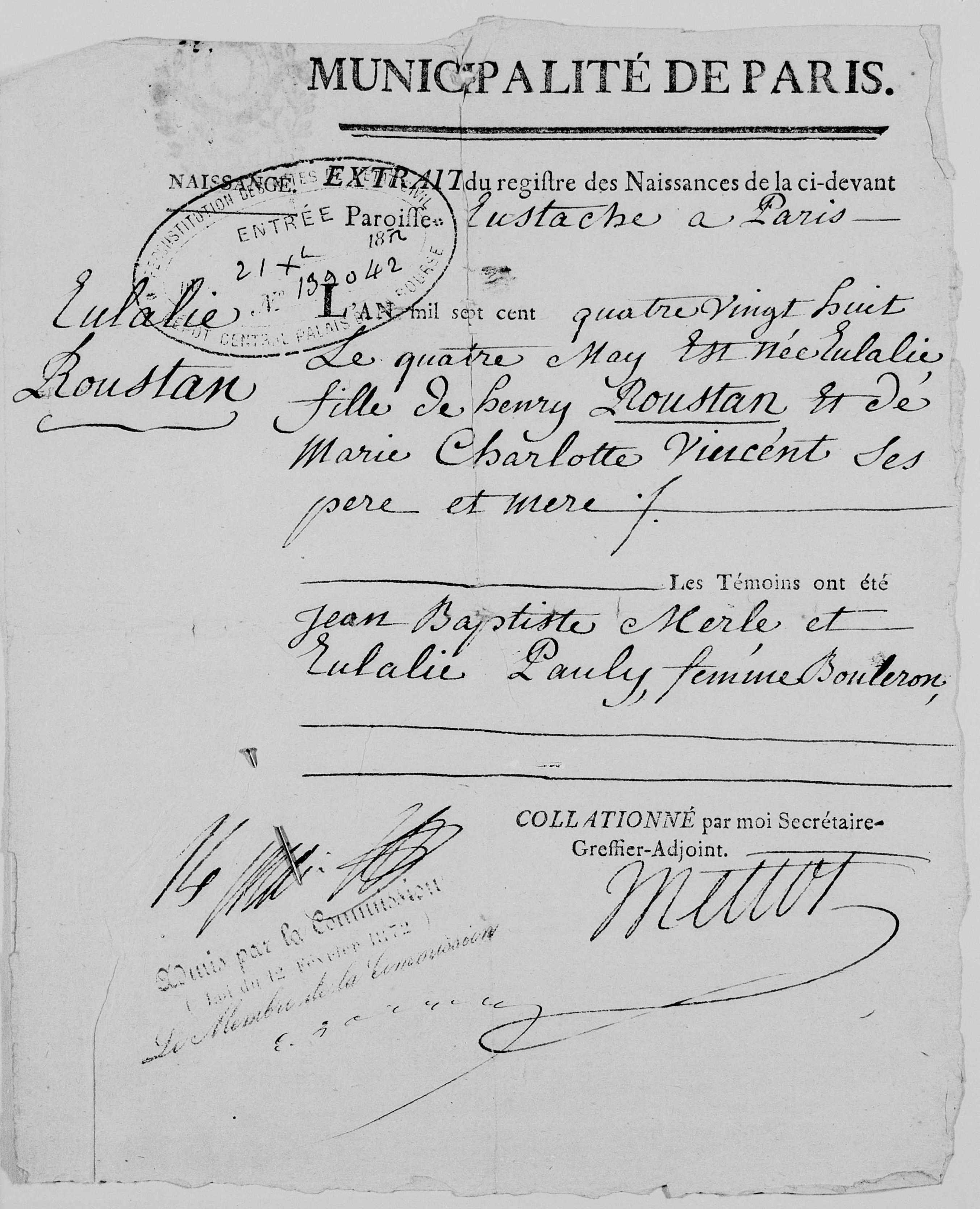
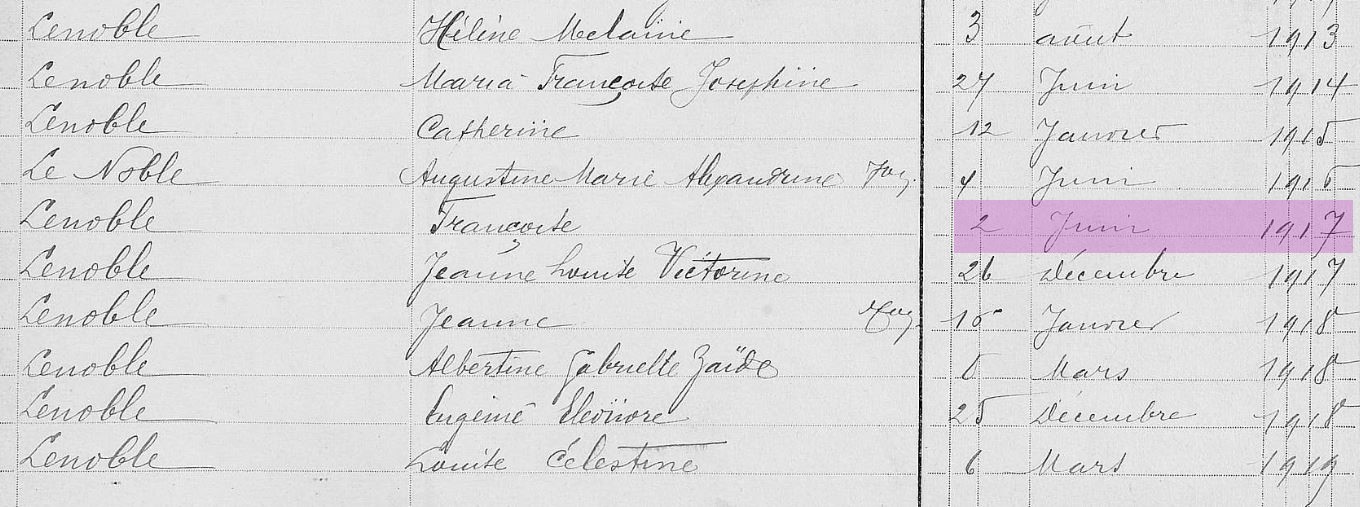
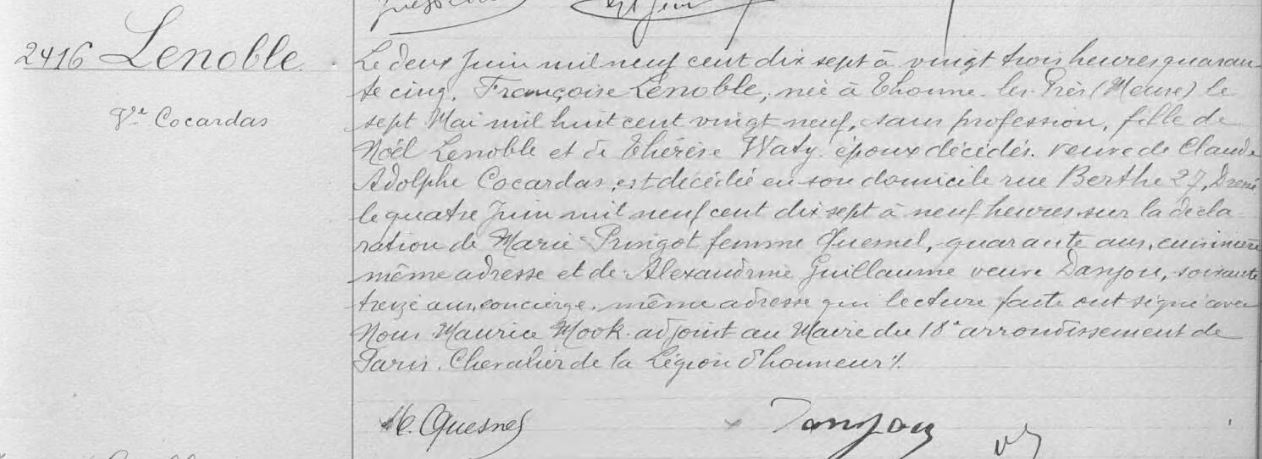
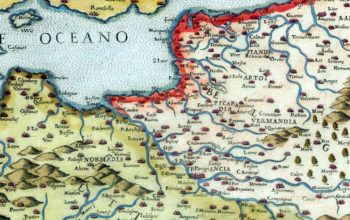
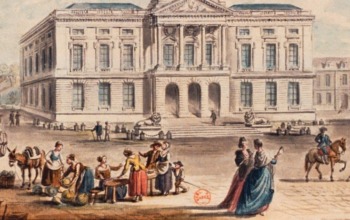

Thank you!
I knew the cards were created after a fire destroyed the records. I hadn‘t looked into the reason for the fire. Also it was interesting to learn there are actually reconstituted records which are available on FamilySearch. I have a few I need to look up. Thank you, Elise.
Un grand merci. J’ai déjà utilisé les fiches des AD de Paris, mais j’ignorais l’existence de ces relevés complets. Trouver cela dans un post en anglais : une belle surprise !
So informative, Elise. Am grateful to know that these efforts were made to reconstruct the records, and to have your clear directions to their access. Toujours…..
Bonjour, et comment allez vous? Je m’appelle Dana, et meme que j’ai etudie le francasi au lycee et a l’universite, je suis completement stupide quand je voudrais de rechere ma chere famille de France. J’habite aus etats unis, et me grand-grand-parents quittent le France dans l’environs de 1874 – juste apres le feu a l’hotel de ville! 🙂
Combien de vous chargez pour votre services? Je voudrais bien d’apprendre plus de mes ancestres. J’
ai 3 noms et 2 possible endroits de naissance – et beaucoup de feuilles official du Canada et Les EU.
Merci pour ce lire, et je suis desolee pour le francais terrible. On peut utilizer Google translate, maid ce n’est pas tres amusant, no? tant mieux.
Encore, merci bien pour votre cadeaux d’information ici sur votre website.
Bonjour,
Merci pour votre message !
Si vous le souhaitez, vous pouvez m’écrire sur mon adresse mail (en bas de cette page), pour me dire plus précisément ce que vous savez sur vos ancêtres français, et ce que vous aimeriez découvrir sur eux.
Elise
Hello, Ms. Lenoble ! My name is Mihaela Zrinski and I come from Slovenia. I am interested in your website, because I want to search for my french ancestors. A little backstory: My great-grandmother Kristina was working in France as a cook, between 1935-1948. On 15.4.1946 in Paris, she gave birth to a daughter, named Daniela Kristina. Great-grandmother said that the child’s father was French. His name was Jeanmon. My uncle and aunt also have his picture. If you need his picture I can send it to you. I will deeply appreciate your help!
With warm greetings, Mihaela Zrinski
I am just beginning to look at French birth records, on a seemingly hopeless quest. Trying to located any records of a birth ca. 11 August 1901, of a baby girl, in Paris. Likely born out of wedlock, perhaps to a German mother and and English father, although no certainty to the father. Mother’s name may have been Bruller, from Landau in Bavaria. No idea as to which arrondissement may have a record, if one even exists.
Realizing this is a very unusual case, any suggestions as to where I might make inquiries will be greatly appreciated. The young girl lived in Bavaria until brought to the USA in 1908 where she was adopted by a couple from Portland, Maine. She is my wife’s grandmother.
Thank you.
Hello,
I think in this case, the best way to go would be to look through the 10-year tables (tables décennales) of each arrondissement between 1893 and 1902, with her maiden name. You can find them through this page: http://archives.paris.fr/s/7/tables-decennales/?
Best regards,
Elise
Hello,
I am wondering if there are city directories for Paris before 1940. Do you know of any and if they are available online?
Thank you!
Hello,
I know that the Archives of Paris have city directories from 1932 to 2018.
However, they are not available online.
Hello Elise,
Your website has been so helpful in simplifying a rather complicated archive searching process in Paris! I really appreciate all of links and resources you have shared. I have a question about finding ancestor’s naturalisation records in Paris between 1920-1940, is there an online resource/archive for that? My great grandparents were from Italy originally but we believe naturalised in Paris France some time around having my grandmother in 1925 as she was a French citizen. I have searched several links you have shared but no luck finding documents with naturalisation information.
Thank you!
Thank you for your comment. All naturalisation files are kept in the French National Archives in Pierrefitte (near Paris). They are not available online but here are a few ways to find information about naturalisation records:
– naturalisation decrees were published in the Journal Officiel de la République or in the Bulletin des Lois (both available on Gallica)
– some naturalisation records have been indexed on the National Archives website
– some naturalisation records have been indexed by Filaesiv.
I hope you will find what you are looking for.
Best regards, Elise
This is so useful for my academic research, thank you mille fois !
Hello Elise
This is so helpful and interesting.
Would you have any advice on where to start a search for birth and adoption records in Paris around 1930?
We have no information except mother’s name and child’s name.
Kind regards,
Suzanne
Hello, the best way to start would be to search for the child’s name in the decennial tables of every arrondissement for the period 1923-1932. These tables are available online on the website of the Archives of Paris: https://archives.paris.fr/s/7/tables-decennales/ (unfortunately, after 1932 they are not online and you would have to go to the archives to search).
Best regards, Elise
Thanks you so much for taking the time to respond.
This is very much appreciated.
Kind regards,
Suzanne